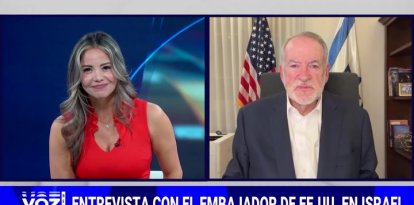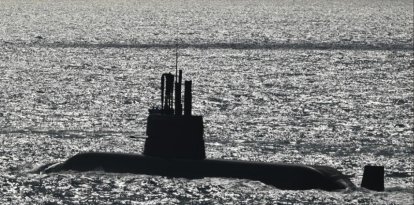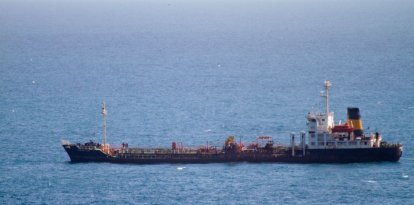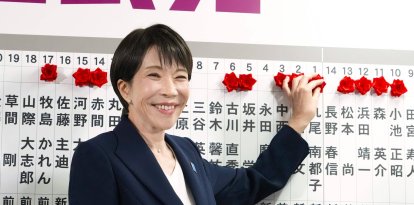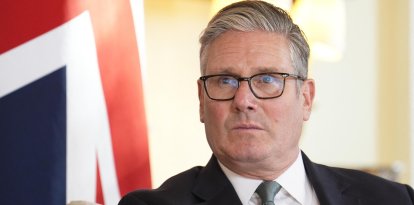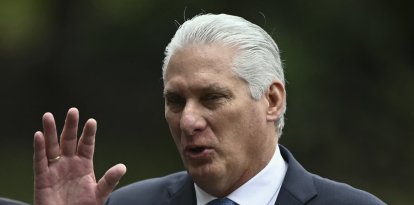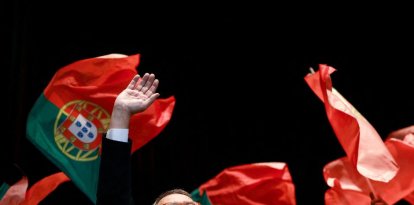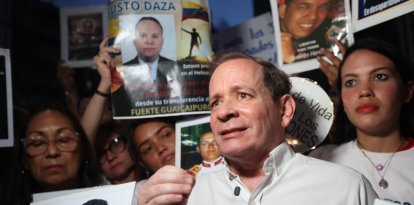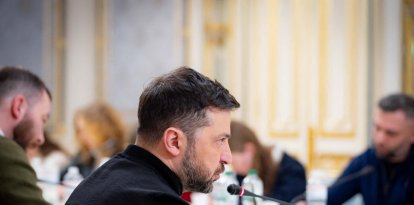Crisis in South Korea: President declares martial law
Yoon Suk Yeol declared that this declaration is necessary to protect the country from the North Korean communist threat.

South Korean soldiers try to enter the National Assembly in Seoul.
South Korean President Yoon Suk Yeol on Tuesday declared martial law, saying the measure was necessary to protect the country from "North Korean communist forces."
"To protect liberal South Korea from threats posed by North Korean communist forces and eliminate anti-state elements ... I declare martial law as a matter of urgency," the president announced in a televised address.
It is the first time martial law has been declared in South Korea since 1979, following the assassination of autocrat Park Chung-hee.
Yoon Suk Yeol and his party, People Power, do not hold a majority in South Korea's unicameral legislative body. The distribution of seats left his party with 108 representatives, against 192 for the opposition, which has generated a situation of legislative deadlock in which Yoon has not been able to make progress through concessions to the opposition.
A few weeks ago, the National Assembly approved, without the support of the government, some meager provisional budgets that Prime Minister Han Duck-soo, appointed by Yoon, will have to work with. However, the government and parliamentary opposition were still locked in a battle over the final budget law, which is key to governance.
"Our National Assembly became a haven for criminals, a den of legislative dictatorship that seeks to paralyze the judicial and administrative systems and overthrow our liberal democratic order," Yoon said during his televised address.
He accused opposition lawmakers of slashing "all key budgets essential to the country's core functions, such as fighting drug-related crimes and maintaining public safety, turning the country into a drug haven and a state of public safety chaos."
Another battle that pitted the conservative government against the opposition was over the dismissal of three pro-government prosecutors from the Seoul Central District prosecutor's office. People Power called the dismissals an act of revenge for the judicial investigation focusing on Lee Jae-myung, opposition leader and chairman of the Democratic Party of Korea, the majority party in the National Assembly.
"I will restore normalcy in the country by getting rid of anti-state forces as soon as possible," he concluded in his speech.
Martial law repealed by the National Assembly
The South Korean National Assembly approved the motion to revoke the emergency declaration of martial law made by President Yoon Suk Yeol, with 190 lawmakers present voting in favor.
National Assembly Speaker Woo Won-shik convened an emergency plenary session on a few hours after the president declared martial law. Under Korean law, the president is obligated to lift the declaration if the National Assembly requests it after a majority vote.
Military presence in the National Assembly and riots with deputies
Several South Korean legislators claimed on social media that there was an irregular presence of military troops surrounding the National Assembly and in the streets of the capital, Seoul. According to the images that the representatives have uploaded to social media, they had to jump over fences in order to attend the emergency plenary session and vote against martial law.
According to international press reports, dozens of armed soldiers made their way to the main entrance of the National Assembly.
A large group of protesters then formed a large human chain to try to prevent Martial Command forces from storming the building. The South Korean military earlier banned all legislative activity and said anyone violating the decree would be arrested.
Riot police have also been filmed preventing demonstrators and legislators from entering the grounds of the South Korean National Assembly.
This suggests that Yoon's government gave orders to stop any legislative activity.
*This is a developing story.













